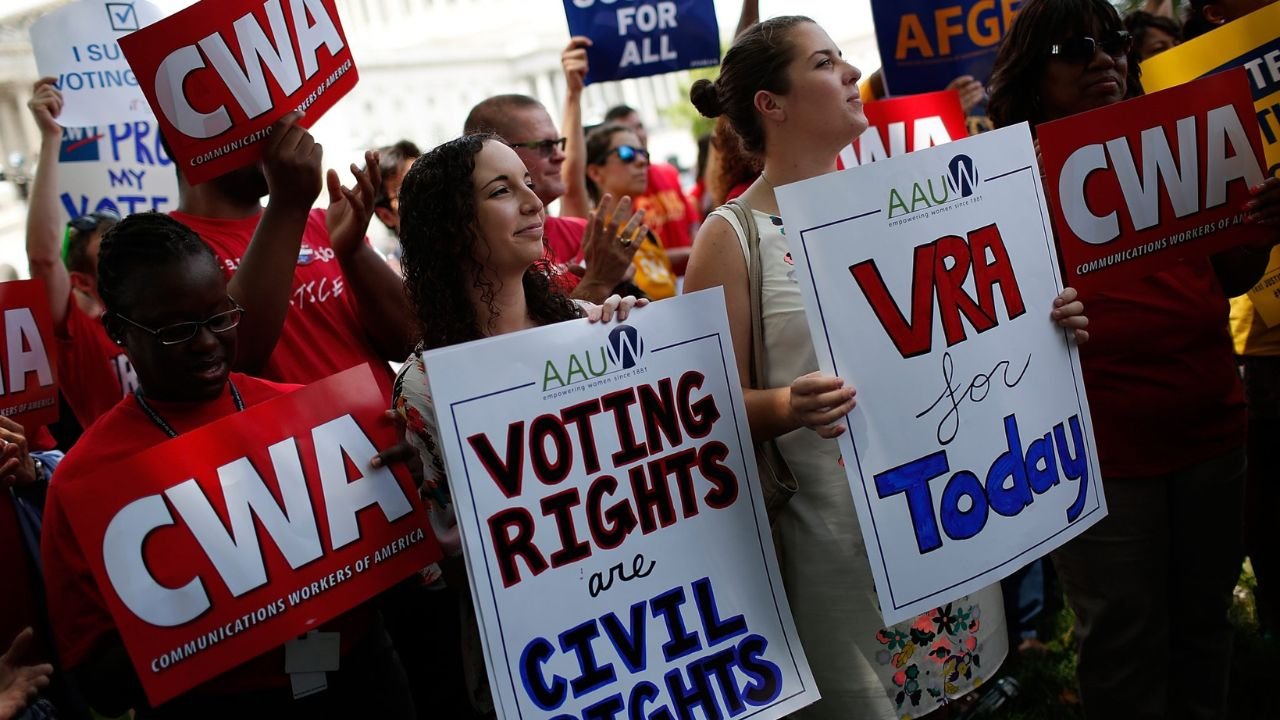The U.S. Supreme Court is currently examining a significant voting rights lawsuit from Mississippi, one with the potential to reshape the legal tools voters use to challenge discrimination.
Case Background: State Board of Election Commissioners v. Mississippi State Conference of the NAACP
Federal Court Findings
In State Board of Election Commissioners v. Mississippi State Conference of the NAACP, lower courts concluded that multiple state legislative districts in Mississippi discriminated against African American voters. They directed that district lines be redrawn in accordance with Section 2 of the Voting Rights Act.
Mississippi does not dispute that ruling. Rather, the state is challenging a different question: can private parties (i.e. citizens or organizations) bring suits under Section 2?
The Issue at Stake: Who Can Sue?
“As many as 95% of the Section 2 cases ever filed in the past six decades have been initiated by private parties,” notes Ari Savitsky, an ACLU attorney on the case. A holding in Mississippi’s favor would essentially block private litigants from initiating voting-discrimination suits—leaving enforcement solely to the U.S. Attorney General.
Such a limitation would be burdensome, especially given the practical challenges and limited resources of a federal executive office.
Significance and Expert Commentary
“If the Supreme Court held that only the Attorney General can bring voting rights cases, that would be profoundly consequential,” states Mississippi College law professor Matthew Steffey.
In a parallel matter, a federal court also found that Mississippi’s state supreme court districts violate the Voting Rights Act. That determination is currently under appeal before the U.S. Fifth Circuit Court of Appeals, but proceedings have paused until the Supreme Court resolves the legislative-district case.
The outcome in the Mississippi case carries national implications. As Professor Steffey warns, a narrower interpretation of enforcement rights—“much more restrictive than how the law has operated for more than 50 years”—would reshape not just voting rights but the Court’s threshold for other civil rights litigation.
The Mississippi Supreme Court Districts Dispute
Mississippi’s state supreme court districts, which have existed in technical form since 1987 but largely remained unchanged for over a century, are also under scrutiny. The historical weight of these districts and their political import amplify the stakes of the litigation.
Savitsky emphasizes that these overlapping challenges—both the legislative and judicial-district disputes—are tied to the central question of private-party enforcement rights.
Steffey underscores that the Supreme Court’s decision may extend well beyond voting rights cases, potentially signaling which categories of suits the Court is willing to entertain in the future. A ruling favoring Mississippi could energize previously dormant legal strategies across a host of issues.
Conclusion
The Supreme Court’s decision in State Board of Election Commissioners v. Mississippi State Conference of the NAACP could redefine an essential dimension of voting rights enforcement: who has standing to sue. If private parties are barred and enforcement lies exclusively with the U.S. Attorney General, many claims of discriminatory redistricting may never see the light of day. With parallel cases over state supreme court districts hinging on the same legal question, the ripple effects of this decision could resonate far beyond Mississippi. The outcome may also reveal how the Court intends to limit or expand access to the judiciary for civil rights claims broadly.
Frequently Asked Questions
Can the Supreme Court prevent private individuals from filing voting rights lawsuits?
Yes — that is the central issue before the Court in this case. Mississippi argues that only the U.S. Attorney General should have standing to bring claims under Section 2 of the Voting Rights Act.
Why is this case so consequential?
Because private parties have initiated nearly 95% of past Section 2 voting rights suits. If that avenue is closed, many discrimination claims may go unlitigated, shifting nearly all enforcement power to a federal office with limited capacity.
How might this decision affect other civil rights cases?
If the Court limits who may bring certain kinds of claims, that precedent could be extended to other areas, potentially narrowing access to courts for a range of civil rights and constitutional claims.


